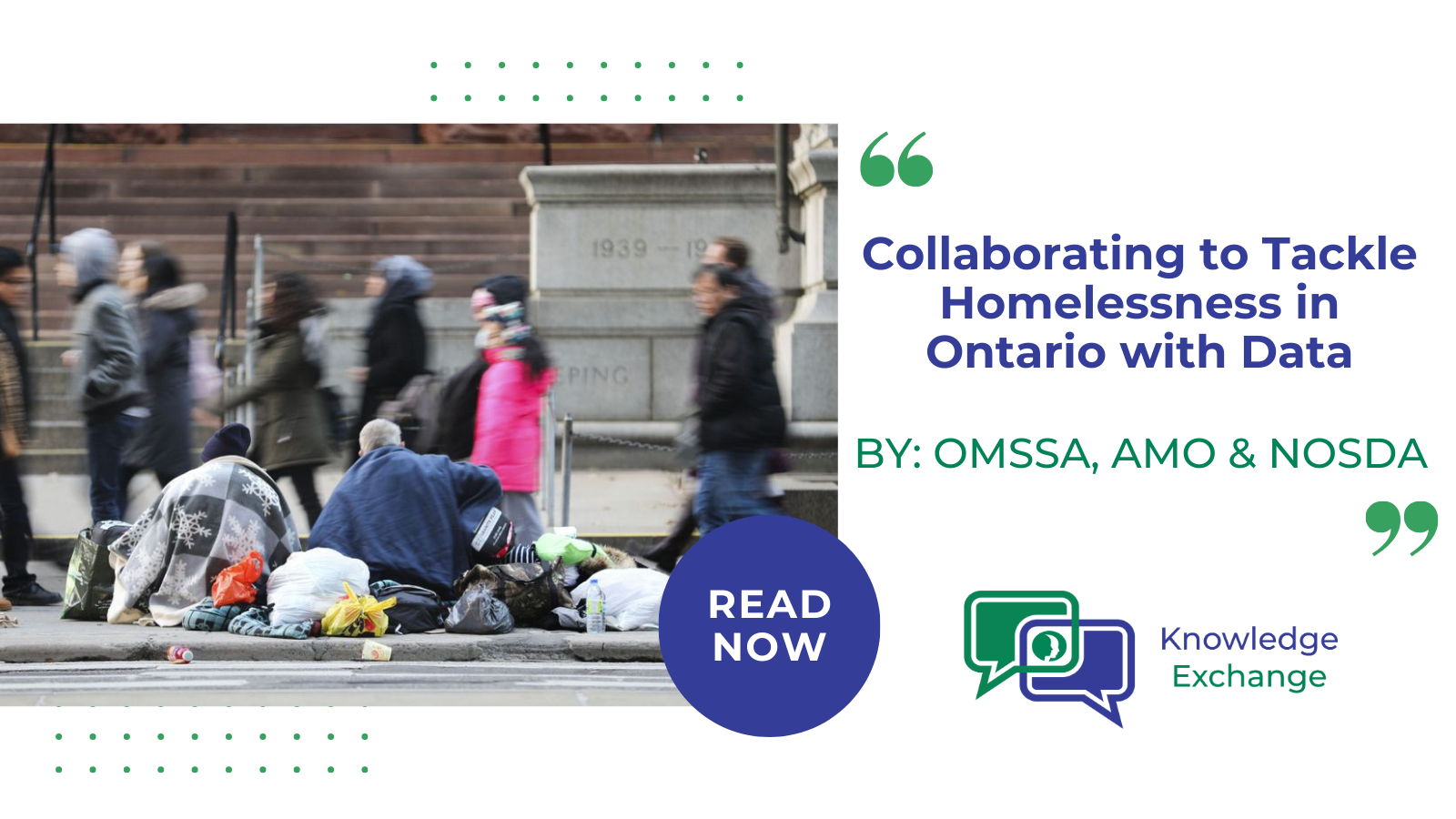Ontario is at a tipping point in its homelessness crisis. This is the stark conclusion drawn from a recent groundbreaking study outlined in the report “Municipalities Under Pressure: The Human and Financial Cost of Homelessness in Ontario.” Released in January 2025, it revealed the unprecedented and growing costs of homelessness to individuals, families, communities, and governments, and charts a collective path forward.
Before this ambitious research study, comprehensive profile of the current and future state of homelessness in Ontario did not exist. As well, there was not a comprehensive assessment of need, identification of the solutions required and cost estimates of what it would take to end chronic homelessness. The research is underpinning continuing policy and advocacy efforts for OMSSA, NOSDA and AMO. The report will serve as a platform for conversations with the provincial government and has gained traction throughout the sector and in the media.




